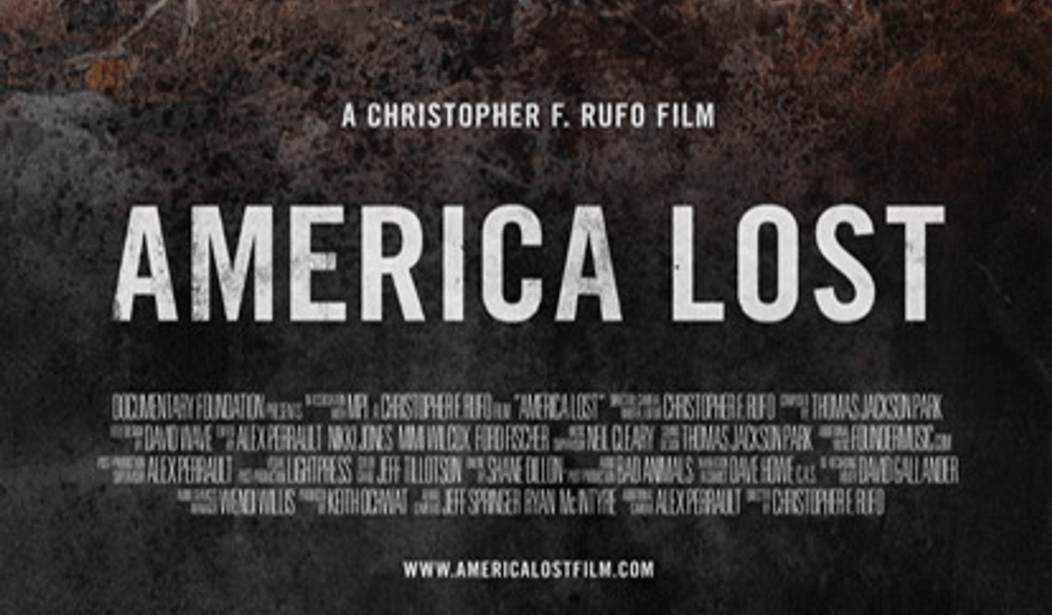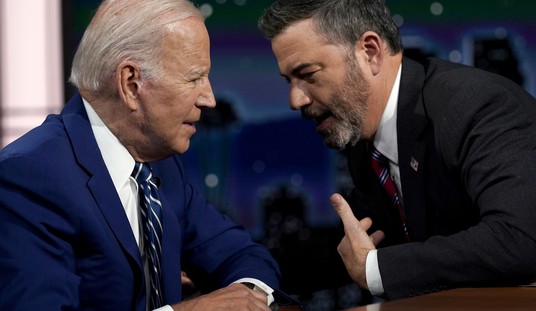When Donald Trump won his historic upset victory in 2016, media outlets briefly turned to the “forgotten” men and women of rural America and those in once-great American cities now crumbling. The “Great Revolt,” as Salena Zito explains it, describes a political realignment aimed at revitalizing broken communities. Yet according to a groundbreaking new film, the true answer to urban decay, broken families, and ballooning debt from dependence on social programs isn’t more government but a return to the traditional sources of meaning: faith, family, work, and community.
Filmmaker Christopher Rufo traveled to three crumbling American cities — Youngstown, Ohio; Memphis, Tenn.; and Stockton, Calif. — and documented the deep human struggles of communities left behind as the 1950s industrial boom yielded to a new kind of economy in the 21st century. America Lost (available here on Amazon Video)explains why top-down government solutions fail to address this urban decay and the film suggests a better path forward.
“Political leaders have long promised to transform poor communities from the top-down, but the situation in places like Youngstown, Memphis, and Stockton is more desperate than ever,” Rufo told PJ Media on Thursday. “While making America Lost, I witnessed another model: communities have stopped waiting for solutions from D.C. and started to take their destiny into their own hands. I call this the ‘inside-out’ model, which recognizes that families, neighborhoods, and churches are the real building blocks of society, and within the direct control of local communities. That’s the hope for the future of these cities.”
America Lost represents the culmination of 5 years of research on Rufo’s part, exploring the “lost American interior.”
“Today, more than 50 million Americans live in distressed communities, with high rates of unemployment, addiction, crime, and violence,” he explains in the film. “I thought I’d be telling an economic story, but over time I discovered there’s a deeper, human crisis. We’re coming apart economically, to be sure, but we’re also coming apart as a culture.”
Turning to Youngstown, a burgeoning steel hub in the 1950s, the documentary shows images of former Presidents Bill Clinton, George W. Bush, and Barack Obama addressing this once-great American city. “For decades, presidential candidates from both political parties have made the pilgrimage to Youngstown, promising to revive the middle-class industrial economy, but nothing has stopped the city’s decline. Since the fall of the steel mills, the public bureaucracy has taken over as the dominant social and economic institution in Youngstown.”
America Lost shows footage of old empty houses getting bulldozed and abandoned houses lying in disrepair. “Today, Youngstown is the poorest city in America. It’s lost 40,000 manufacturing jobs and more than half of its population,” Rufo narrates. “They’ve lost the human bonds that once held people together.”
While the top 10 percent of the population works in the public bureaucracy, the bottom 50 percent “survives on public assistance, disability, or is currently incarcerated.” The movie zeroes in on Nikki, a high school student deciding whether or not to leave the area entirely in search of new opportunities. “The choice is heart-wrenching: stay to be near friends, family, and the last vestiges of community; or pack up and leave Youngstown forever.”
Rufo warns that Youngstown is a warning about America’s future. “At heart, the crisis in America’s forgotten cities is a crisis of meaning. All of the old structures that once provided a solid foundation — faith, family, work, community — have slowly fallen apart.”
After Youngstown, the documentary turns to Memphis, which used to be “an economic jewel for black people,” providing struggling people a ticket to the middle class. Yet now the city is crumbling. Joseph, a black man in his thirties, opens up about his tragic story. Both of his brothers were killed, he sold crack and spent time in prison. “It really makes you feel like you’ve been set up to fail, growing up in an environment like this,” he says.
Rufo zeroes in on the 38126 zip code of south Memphis, where 93 percent of all households are headed by a single mother, 78 percent of all families are on public assistance, and only 20 percent of all working-age men are employed full-time throughout the year. Out of 6,000 residents, there are only ten nuclear families.
America Lost tells the story of Contrina, a single mom with two daughters from two different men — each serving time in prison in two separate states. “It’s like a piece of your heart is missing,” one of her daughters says. Contrina wants to break the cycle, encouraging her daughters to graduate high school, got to college, and get married before having children.
“There’s no way of getting around the fact that in order to truly understand American poverty, we have to address the question of family,” Rufo narrates. “The challenge in places like Memphis is that the family has been broken all the way down. Fathers, husbands, brothers, and sons have all been displaced from their traditional roles.”
“For the past 50 years, we’ve tried to solve these problems through public policy. The federal government currently spends more than $3 billion a year in Memphis, but nothing works,” he narrated.
Finally, the film turns to Stockton, a California city with about a quarter of four racial groups: black, white, Hispanic, and Asian. The city filed for bankruptcy in 2012. Rufo drives past tent cities with California Highway Patrol Officer Justin Love. As they drive past a memorial for a black man killed in gang violence, Love says, “If I had stayed in this neighborhood, that could have been me right there.”
“I met countless young men who survive on a combination of the drug trade, violence, and the generosity of girlfriends,” Rufo narrates. “It’s a merciless world of all against all.”
“In cities like Stockton, we’ve been fighting an invisible war for nearly three generations. We now spend $1.1 trillion a year on anti-poverty programs, but the official poverty rate hasn’t changed in half a century,” he explains. “Both political parties have treated human beings as functions in a math problem. If we can just change some of the variables, cut spending here, increase spending there, we can fix this.”
“But the truth is that human beings can’t be reduced to the mathematical sense. We’re complex individual creatures who live in a vast web of family, culture, economics, and community. No matter how careful its design, the bureaucracy can never satisfy our deeper human needs,” Rufo warns. He described meeting men and women who are “searching for a sense of meaning, purpose, and a moral order.”
“I didn’t set out to tell a story of religion, but the reality is that faith-based organizations are still the cornerstone of poor communities. In places like Stockton, inner-city churches are often the only remaining institutions that offer a clear sense of meaning, purpose, and community,” the filmmaker concludes. “In the men’s recovery home at victory outreach, they have an astonishing 70 percent success rate helping addicts and gang members turn their lives around. Their secret is that they speak to the heart of the human condition and transform people through genuine human relationships.”
The key to combatting “this new American poverty” isn’t top-down government programs but a reformation of the heart. “The solution for our forgotten cities is not just to revive their economies, but to create a new foundation for our fractured, postmodern world. We must rediscover the traditional sources of meaning, faith, family, work, and community, and adapt them to the modern condition.”
America Lost tells a compelling story about the “new American poverty,” why government cannot meet the deep human problems, and why faith and family best form the bedrock for regrowth in America’s forgotten cities. The film offers a gritty but important look at the “forgotten” cities that illumines social displacement extending far beyond these hollowed-out communities. America Lost isn’t just important for understanding the “Great Revolt,” it’s also a vital resource in combatting the social malaise spreading throughout the entire society.
Tyler O’Neil is the author of Making Hate Pay: The Corruption of the Southern Poverty Law Center. Follow him on Twitter at @Tyler2ONeil.









Join the conversation as a VIP Member